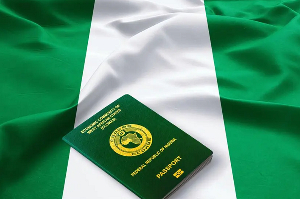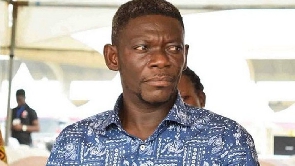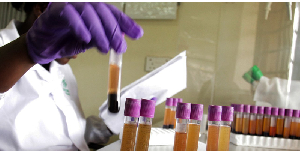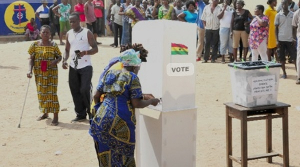Opinions of Wednesday, 2 July 2008
Columnist: Mensah, Michael Nandomah
Water Efficiency And Conservation; A Rare Practice In Ghana?
A bulk of Ghana’s population has no access to treated pipe-borne water. According to a joint monitoring programme for water supply and sanitation of UNICEF and WHO, total household connections stands at 19%. According to one estimate, only one quarter of the residents in Accra receive a continuous water supply.
The Ghana Water Company Ltd. (GWCL) is responsible for providing, distributing, and conserving water for domestic, public, and industrial purposes in 82 urban systems in localities with more than 5,000 inhabitants. Moreover, the company is mandated to establish, operate, and control sewerage systems in Ghana. The provision of treated portable water is very expensive is very expensive venture. According to the Water Sector Restructuring Secretariat, non-revenue water in urban areas alone stands at approximately 50% of the produced water, i.e. it is lost, among other things, due to leakage and illegal connections. That means over half of treated portable water produced do not get to the consumer, of the amount that finally gets to the consumer a bulk of it is wasted on domestic activities that do not necessarily require portable water such as flushing toilets, washing cars, watering of lawns and gardens, construction work etc.
Provision of treated portable water has remained of the country’s biggest challenge. The lack of clean drinking water and sanitation systems is a severe public health concern in Ghana, contributing to 70% of diseases in the country. Consequently, households without access to clean water are forced to use less reliable and hygienic sources, and often pay more.
Waste water recycling and sewage treatment has received little attention over the years. Though there a number sewage treatment centres in the country, they are not working as they should. It is estimated that in 2000 the urban areas of Ghana generated about 763,698 m³ of wastewater each day, resulting in approximately 280 million m³ over the entire year.
In a country where availability and access to treated portable water is a huge challenge. Water efficiency should be very encouraged. Whilst some people use treated portable water for activities such as washing cars, watering lawns, construction work etc., others have to queue for hours to get a bucket of water just for drinking.
Your ability to pay your water bills does not give you the right to abuse it. It is high time Ghanaians became conscious of water use since this vital commodity is the very foundation of life. This should start with the individual at home; turning off the water while brushing your teeth or whilst shaving, installing water-saving shower heads or flow restrictors and avoiding running the hose while washing your car could all go a long way to conserve water. Underground water is known to be safe and clean even in its untreated form. Using treated portable water for every domestic activity should therefore be a descourageable practice.
For now, here are some water efficiency tips each individual must know;
1. Fix leaky faucets and plumbing joints.
2. Don't run the hose while washing your car. Use a bucket of water and a quick hose rinse at the end.
3. Install water-saving shower heads or flow restrictors.
4. Run only full loads in the washing machine and dishwasher.
5. Shorten your showers. Even a one or two minute reduction can save a lot of water.
6. Don't use your toilet as an ashtray or wastebasket.
7. Check toilet for leaks. Put dye tablets or food coloring into the tank. If color appears in the bowl without flushing, there's a leak that should be repaired.
8. Turn off the water while brushing your teeth.
9. Turn off the water while shaving. Fill the bottom of the sink with a few inches of water to rinse your razor.
10. Have an evaporative air conditioner? Direct the water drain line to a flower bed, tree base, or Lawn.













